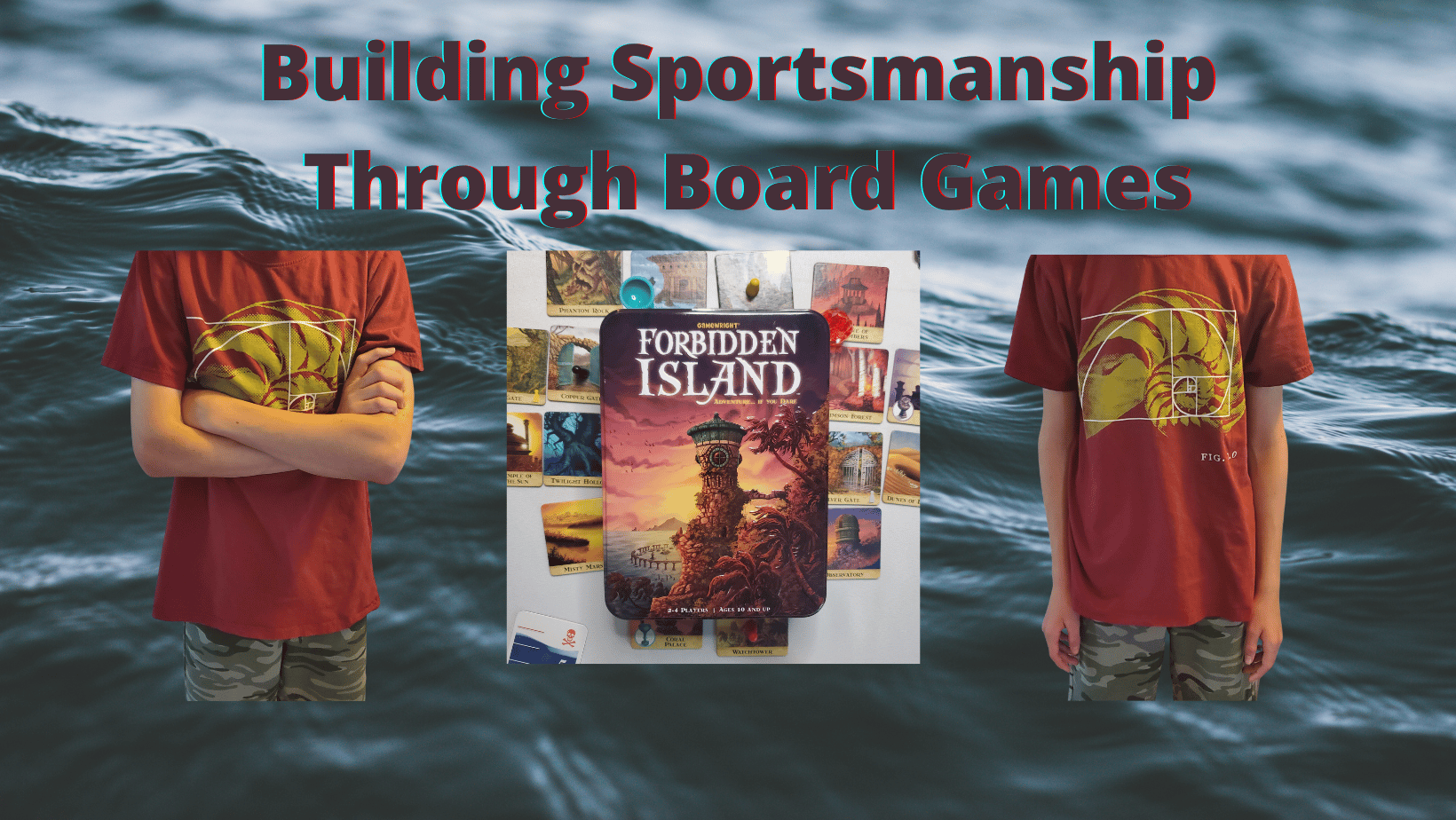Playing games can evoke strong emotions in players of all ages. Sportsmanship can be challenging for some children as they are learning to play games, as well as learn to manage their emotions. Parents do not despair if your child struggles when they lose a game. Learning good sportsmanship is a critical life skill and board games can help support this development.
One common challenge for many kids is that they are highly competitive. This competitiveness plays out in a few behaviors or challenges when playing games (whether they are video games, board games, sports, or games in Gym class or on the playground). The main challenge is that they “need” to win, and some children struggle when they do not win.
With a few strategies and some planning, you can support your child’s development of good sportsmanship.

Teaching the Expected Behavior and Strategies
It is not intuitive for children to know how to cope with strong emotions and they benefit from learning strategies and social expectations. There are a few ways to support their development of these skills and strategies.
- First and most importantly the adults and other kids playing need to consistently model being a gracious winner or loser. This is key, because kids often imitate what they see.
- Share your thoughts and emotions regardless of whether you win or loose. By sharing your feelings of disappointment when you loose and at the same time being calm and a good sport.
- Plan beforehand what to say to the winner or to fellow players if you win. Kids need to have a script to follow at least to start. By knowing what to say, they can have an appropriately response ready without escalating the situation.
- Strategize coping with strong emotions. Kids have strong emotions, as do adult, but many kids do not know how to cope with their strong emotions. You want to try and begin with situations which will minimize creating strong emotions and the increasing the potential for more emotions. Before sitting down to play a game, reminders of belly breathing strategies as well as appropriate behaviors when upset (such as hitting a pillow).
- Plan what to do and say and practice by roleplaying.
Be Selective with the Games
Choosing games thoughtfully and with your child in mind can really help to build success and support their development of sportsmanship. The time a game plays and the game mechanics (how the game is played) can drastically impact the way it is received by the child.
Cooperative Games
To eliminate some of the competition cooperative games are a great option. The players work together to win against the board. A great example of this is the game Hoot Owl Hoot. In this game players are trying to get all the Owls back to the nest before the sun rises. Everyone works together to meet this goal, and if they don’t succeed they just don’t succeed. Since everyone works together there is not the same “sting” of loosing.
Short Game Play
If you want to incorporate competitive games, try to find short games that can be replayed quickly. By having a short time investment, they can be played multiple times. So if the child does not win, they can immediately try again. The short games also have less emotional investment due to less time investment.

Time and Patience
New skills take time to acquire and habits can take four times as long to extinguish. It will take many repetitions and many sessions of practice to internalize the new skills and strategies when playing games. Being competitive can be a great asset, kids just need to learn social expectations and how to self regulate.
Suggested Games for Preschoolers
- Hoot Owl Hoot (cooperative)
- My First Castle Panic (cooperative)
- Bandits Memory Mix Up (short game play)
- Hiss (short game play)
Suggested games for age 5 to 7
- Zombie Kidz (cooperative)
- Too Many Monkeys (short game play)
- Cauldron Quest (cooperative)
- Dragomino (short game play)
- Happy Salmon (short and silly game play)
Suggested games for 8 and up
- Forbidden Island (cooperative)
- Blockness (short game play)
- Pandemic (cooperative)
- Last Defense (cooperative)
For Older Kids
- Chonky Donkey (Short and Silly for ages 12+)
Final Thoughts
So, the next time you see your child visibly upset from a game, know that it’s all part of the process. Congratulations! Your child is learning how to manage difficult emotions and develop important life skills. Board games can help support this growth – and luckily for us parents, they provide tons of opportunities for teachable moments.
What do you think? Sound off in the comments and let us know your thoughts!
Make sure to keep your eyes on Engaged Family Gaming for all of the latest news and reviews you need to Get Your Family Game On!
- Video Games for kids on Xbox One
- Video Games for kids on PS4
- Video Games for kids on Nintendo Switch
- Board Games for kids
Follow us on Facebook!
Like us on Twitter
Follow us on Instagram!
Subscribe to our Newsletter!
Subscribe to our Podcast!
